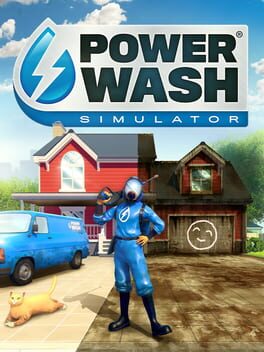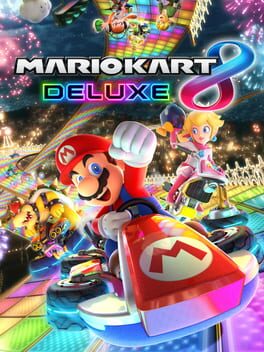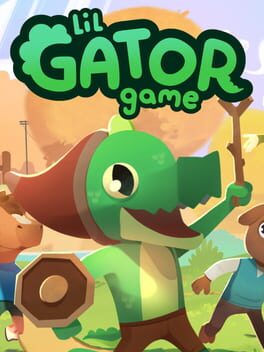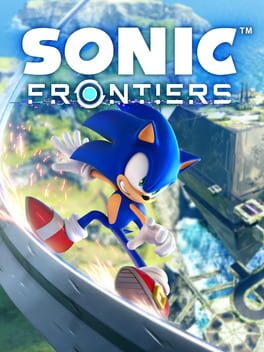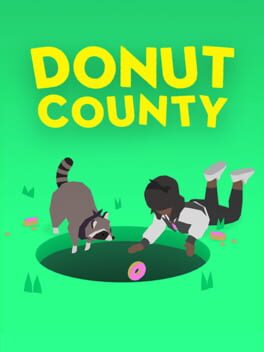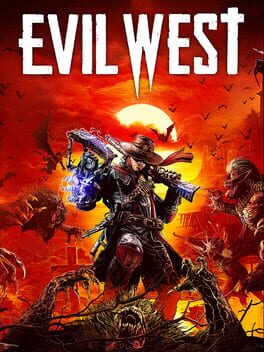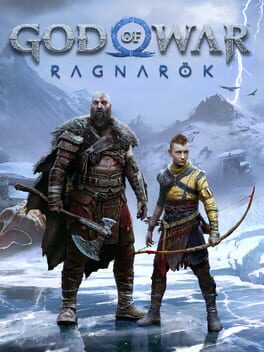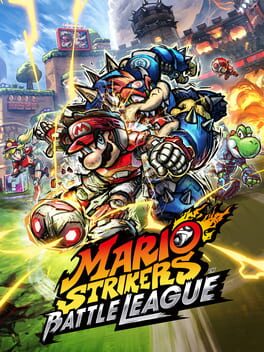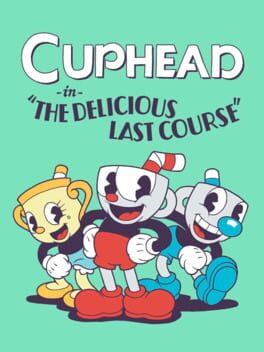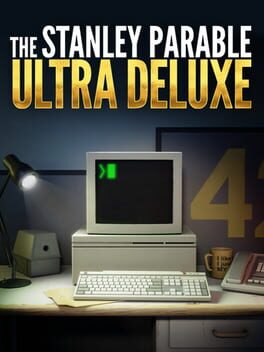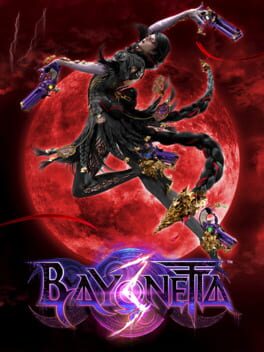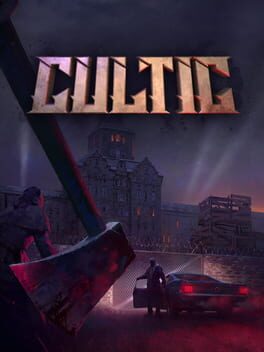lithiumproject
2021
2017
2022
A thoroughly charming exploration game that uses BOTW as its framework but on a bite-sized scale and lacks a fail state.
Simply wandering around the world, you'll stumble into an array of characters with quests and adventures on a smaller scale (a girl cosplaying as a vampire wants an ice cream but won't leave her cave) and it's all delightful. The simplicity leads to its biggest fault - a lack of challenge, but it's an easy 3-4 hours to sink your teeth into.
Simply wandering around the world, you'll stumble into an array of characters with quests and adventures on a smaller scale (a girl cosplaying as a vampire wants an ice cream but won't leave her cave) and it's all delightful. The simplicity leads to its biggest fault - a lack of challenge, but it's an easy 3-4 hours to sink your teeth into.
2022
2018
2022
A video game with a capital V. Coming out of a time capsule from 2010, tight combat crashes head-on with its bone-headed presentation.
However, for the most part, there's no fat on the bone, as you're not never too far from your subsequent combat encounter, which is only spoiled by a heavy reliance on the previous boss encounters to ramp up the difficulty. Enjoyed.
However, for the most part, there's no fat on the bone, as you're not never too far from your subsequent combat encounter, which is only spoiled by a heavy reliance on the previous boss encounters to ramp up the difficulty. Enjoyed.
2022
Chasing the dragon that is God of War’s (2018) success was always going to provide a challenge. You’d expect a sequel of this size and budget to minimize taking risks and focus on expanding the scale and narrative. However, 2018 is a tight-knit, focused experience on gameplay with a solid narrative to complement it. Ragnarok, on the other hand, leans so heavily on a story that is compelling enough but not one worth dragging through a plodding 30+ campaign.
The pacing on this thing is glacial at points, with the warts of AAA design hovering all over this thing; characters desperate to spew exposition in every moment of space, puzzles that never evolve past “throw the object at the environment,” an RPG-lite skill tree that deprives you of any basic strategy and linear environments that attempt to give you a false perception you can go in any direction other than straight.
There is no doubting the technical finesse of Ragnarok and Santa Monica Studios. They are truly industry-leading in creating that AAA blockbuster experience with their motion capture tech, strong voice-acting performances, incredible visuals, and spectacular set pieces. The game retains some of its predecessor's magic with several memorable boss fights that fit up with some of the best in the series, but so much of this game feels like you’re on the Disney World “It’s a Small World" ride. You have no control over what happens, and it’s the slowest fucking thing in the universe.
The pacing on this thing is glacial at points, with the warts of AAA design hovering all over this thing; characters desperate to spew exposition in every moment of space, puzzles that never evolve past “throw the object at the environment,” an RPG-lite skill tree that deprives you of any basic strategy and linear environments that attempt to give you a false perception you can go in any direction other than straight.
There is no doubting the technical finesse of Ragnarok and Santa Monica Studios. They are truly industry-leading in creating that AAA blockbuster experience with their motion capture tech, strong voice-acting performances, incredible visuals, and spectacular set pieces. The game retains some of its predecessor's magic with several memorable boss fights that fit up with some of the best in the series, but so much of this game feels like you’re on the Disney World “It’s a Small World" ride. You have no control over what happens, and it’s the slowest fucking thing in the universe.
2022
It's outrageous the level of confidence, swagger and presentation this game has for a team of two on what is (I think) their debut title.
The PS1 survival horror mechanics are blunt to see, but the fusion of Kojima-esque direction, 90s anime and cold war-era Germany iconography make Signalis one of the most memorable games I've played in some time. It also doesn't go for cheap thrills and scares (thankfully), instead, layering the tension with its lo-fi aesthetic and mechanical choices.
It's not perfect, with the pacing towards the end faltering ever so slightly, and some of the puzzles feeling just a bit too obtuse in terms of their logic.
The balancing act of being a loveletter to a specific era, encompassing a number of throwbacks and elements without ever feeling like the game relies on them, is executed about as well as anyone could possibly attempt. Essential.
The PS1 survival horror mechanics are blunt to see, but the fusion of Kojima-esque direction, 90s anime and cold war-era Germany iconography make Signalis one of the most memorable games I've played in some time. It also doesn't go for cheap thrills and scares (thankfully), instead, layering the tension with its lo-fi aesthetic and mechanical choices.
It's not perfect, with the pacing towards the end faltering ever so slightly, and some of the puzzles feeling just a bit too obtuse in terms of their logic.
The balancing act of being a loveletter to a specific era, encompassing a number of throwbacks and elements without ever feeling like the game relies on them, is executed about as well as anyone could possibly attempt. Essential.
2022
A game that I loved looking at as much as I hated playing it. Immortality hangs its hat on a mechanical gimmick that will blow your mind the first time you discover it but wears fast soon after.
I am fully aware that I'm not the target audience as I don't give a shit about Lynch, but I didn't find much of the actual "story" of the game (or how it conveys the story) to be all that compelling, it was more the production and performances that kept me going.
I am fully aware that I'm not the target audience as I don't give a shit about Lynch, but I didn't find much of the actual "story" of the game (or how it conveys the story) to be all that compelling, it was more the production and performances that kept me going.
2022
Small but perfectly formed. A new batch of bosses crafted to bring all the challenges of the original in this compact DLC package (and up there with some of the toughest bosses to be found in Cuphead). Ms Chalice adds a different style of play which also extends to the original game.
Just excellent stuff.
Just excellent stuff.
2022
If nothing else, Bayo3 is an ambitious game, but it simply cannot excuse most of the ambitions it shoots for, some of that is down to being on the Switch; some of it is questionable game design.
As a fan of the original, I’m delighted 2 & 3 even got to happen thanks to Nintendo, but my feelings the towards series have significantly waned with each entry.
The overall target aimed for is “spectacle” which comes at a heavy price, as the overall fidelity of combat is thrown out the window in favour of a continuing upscaling of kaiju-style battles that feel like little more than mindless button-mashing sessions. There’s also the issue that Bayo3 barely feels like an evolution graphically from the original, and of course, heavy concessions have been made to make this game run as well as it can on the Switch, but many parts of the environment just don’t hold up in 2022 and are on part with Sonic ‘06 at best.
I’d have loved for Bayo3 to hit me with the same feelings I had all those years ago, but outside of select moments, I just wanted to get it over with.
As a fan of the original, I’m delighted 2 & 3 even got to happen thanks to Nintendo, but my feelings the towards series have significantly waned with each entry.
The overall target aimed for is “spectacle” which comes at a heavy price, as the overall fidelity of combat is thrown out the window in favour of a continuing upscaling of kaiju-style battles that feel like little more than mindless button-mashing sessions. There’s also the issue that Bayo3 barely feels like an evolution graphically from the original, and of course, heavy concessions have been made to make this game run as well as it can on the Switch, but many parts of the environment just don’t hold up in 2022 and are on part with Sonic ‘06 at best.
I’d have loved for Bayo3 to hit me with the same feelings I had all those years ago, but outside of select moments, I just wanted to get it over with.
2022
